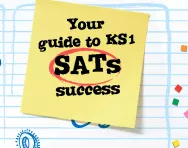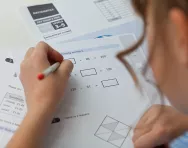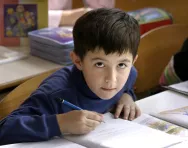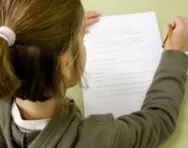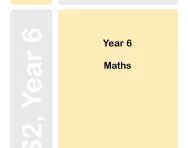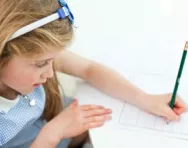Important update from TheSchoolRun
For the past 13 years, TheSchoolRun has been run by a small team of mums working from home, dedicated to providing quality educational resources to primary school parents. Unfortunately, rising supplier costs and falling revenue have made it impossible for us to continue operating, and we’ve had to make the difficult decision to close. The good news: We’ve arranged for another educational provider to take over many of our resources. These will be hosted on a new portal, where the content will be updated and expanded to support your child’s learning.
What this means for subscribers:
- Your subscription is still active, and for now, you can keep using the website as normal — just log in with your usual details to access all our articles and resources*.
- In a few months, all resources will move to the new portal. You’ll continue to have access there until your subscription ends. We’ll send you full details nearer the time.
- As a thank you for your support, we’ll also be sending you 16 primary school eBooks (worth £108.84) to download and keep.
A few changes to be aware of:
- The Learning Journey weekly email has ended, but your child’s plan will still be updated on your dashboard each Monday. Just log in to see the recommended worksheets.
- The 11+ weekly emails have now ended. We sent you all the remaining emails in the series at the end of March — please check your inbox (and spam folder) if you haven’t seen them. You can also follow the full programme here: 11+ Learning Journey.
If you have any questions, please contact us at [email protected]. Thank you for being part of our journey it’s been a privilege to support your family’s learning.
*If you need to reset your password, it will still work as usual. Please check your spam folder if the reset email doesn’t appear in your inbox.
Start preparing for SATs today

In the summer term, Year 6 children across the country sit their SATs. For some children, it can be a tense time and they may feel nervous or lack confidence. But as a parent, there's plenty you can do to help your child build their confidence so that they begin to see themselves as autonomous, independent learners.
Whether your child is sitting SATs this year or not, use these tips so they’re more prepared when the day comes.
Key Stage 1
KS1 SATs are now optional, so your child may not sit them. But if they do, it will be in Year 2 during the month of May. The exact timetable will be set by the school. Often, they are kept very low-profile; children may be unaware that they're even being tested, and it's unlikely that they'll be expected to do practice tests at home
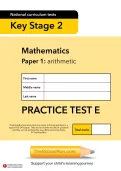
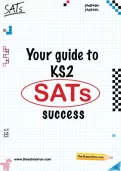
Prepare your child for SATs today
- Your guide to SATs
- KS1 & KS2 SATs revision courses
- SATs practice papers in English & maths
Nevertheless, encouraging them to develop some general skills will stand them in good stead.
Encourage independent reading
When your child comes home from school, encourage them to select a book to read on their own. When they've finished, get them to retell the story in their own words. This will help them gain confidence in their reading and communication skills.
Take a trip to the shops
Money maths questions often feature in KS1 SATs papers, so help your child become familiar with the values of different coins. Talk to them about different ways of making the same sum of money; for example, how many different coins can they use to make 53p?
Make a start on times tables
Nationwide times tables tests were introduced in Year 4, but the arithmetic paper your child may take in Year 2 will include some basic multiplication questions. If your child is fluent in their 2x, 5x and 10x tables, they'll have a headstart.
Practise weighing and measuring
Your child will be expected to have an understanding of weights and measures to solve problems in the maths reasoning paper. You can help them prepare by involving them in baking, weighing out the ingredients and reading the scales, and by indulging in some water play at bathtime, filling different containers and putting them in order of most to least volume.
Learn to tell the time
To prepare your child for questions involving reading a clock, invest some effort in helping them learn to tell the time, using both an analogue and digital clock. They should be able to tell the time to within five minutes by the end of Year 2. It's a great reason to buy them their very first watch, or to invest in some of these time-teaching products.
Work on inverse operations
As well as being able to solve simple problems like 2 + 4 = 6, your child is expected to fill in the gaps in questions, which involves using inverse operations: for example, to find the missing number in 2 + ? = 6, they need to understand that they should subtract 4 from 6 to give the answer. Test your child by firing quick questions at them so they gain speed and confidence.
Encourage correct punctuation
Whether your child is writing thank-you letters for birthday presents, their Christmas wishlist or their first novel, encourage them to begin to use basic punctuation correctly. If they've mastered capital letters, full stops, commas and speech marks, they'll be well equipped to tackle their English SATs.
Key Stage 2
Year 6 SATs are a bigger deal. The results determine a school's place in league tables, so they will encourage children to do their best.
Children are likely to work on past papers in class, but you can help improve your child's performance through home learning – and it doesn't have to feel like hard work.
Get green-fingered
Collecting and analysing data is an important part of numeracy in KS2 SATs. A great way to practise is to plant some seeds and monitor their growth in a chart or graph. Yout child could think about things which might affect the rate of growth, carry out predictions and even write up the experiment. It will spark their interest and help them prepare for work in school.
Drill down their times tables
Children are expected to know all their times tables up to 12 x 12, and the faster your child's recall is, the better they will do. Practising tables can be dull, so why not try one of these maths apps to make it feel less like hard work?
Join the library
Reading comprehension is a key part of KS2 English SATs. Your child needs a wide vocabulary and the ability to analyse and interpret different types of text: fiction, non-fiction, poetry and plays, and so on. Encouraging them to read extensively will equip them to do well in their tests, so why not join your local library for an exhaustive supply of free books? Many now loan e-books and audiobooks, too.
Let them take charge of pocket money
Year 6 children will need to tackle quite complex money maths questions. Real-life experience is the best way to learn, so let them take charge of their pocket money. Give them a notebook to record what they're given and what they spend, balancing the totals, or show them how to use a computer-based spreadsheet. Consider letting them earn small amounts of money for household chores, and add these to their pocket money.
Work on their memory skills
SATs involve committing lots of information to memory, but children don't necessarily know the best ways to do this. Tricks like mnemonics, visual cues and rote learning can all help your child hone their memory skills. Try these great techniques to boost their brain power.
Play family games
SATs practice doesn't have to mean slaving over textbooks and past papers; your child stands to gain valuable new skills and knowledge through traditional board games and video games. Games such as Scrabble, Boggle, Bananagrams and Upwords are great for building vocabulary and reinforcing spellings, while card games and chess are good for cementing numeracy and reasoning.
Get hands-on in the kitchen
Your child can expect lots of questions based on fractions, decimals and angles on their maths papers. Bring these topics to life by encouraging them to help you in the kitchen. Tasks such as cutting a pizza or pie into equal portions, or upsizing a recipe to make an extra-large batch of cakes, will give them real-life practice.
Allow chill-out time
We all want our kids to do well in their SATs, but be realistic: no child will do their best if they constantly have their nose in a book. Encourage them to eat well, get enough sleep and take part in their usual after-school activties. Worrying about their stress levels? Try these useful relaxation tips.
Want some more tactics to try? Check out our tips for:
